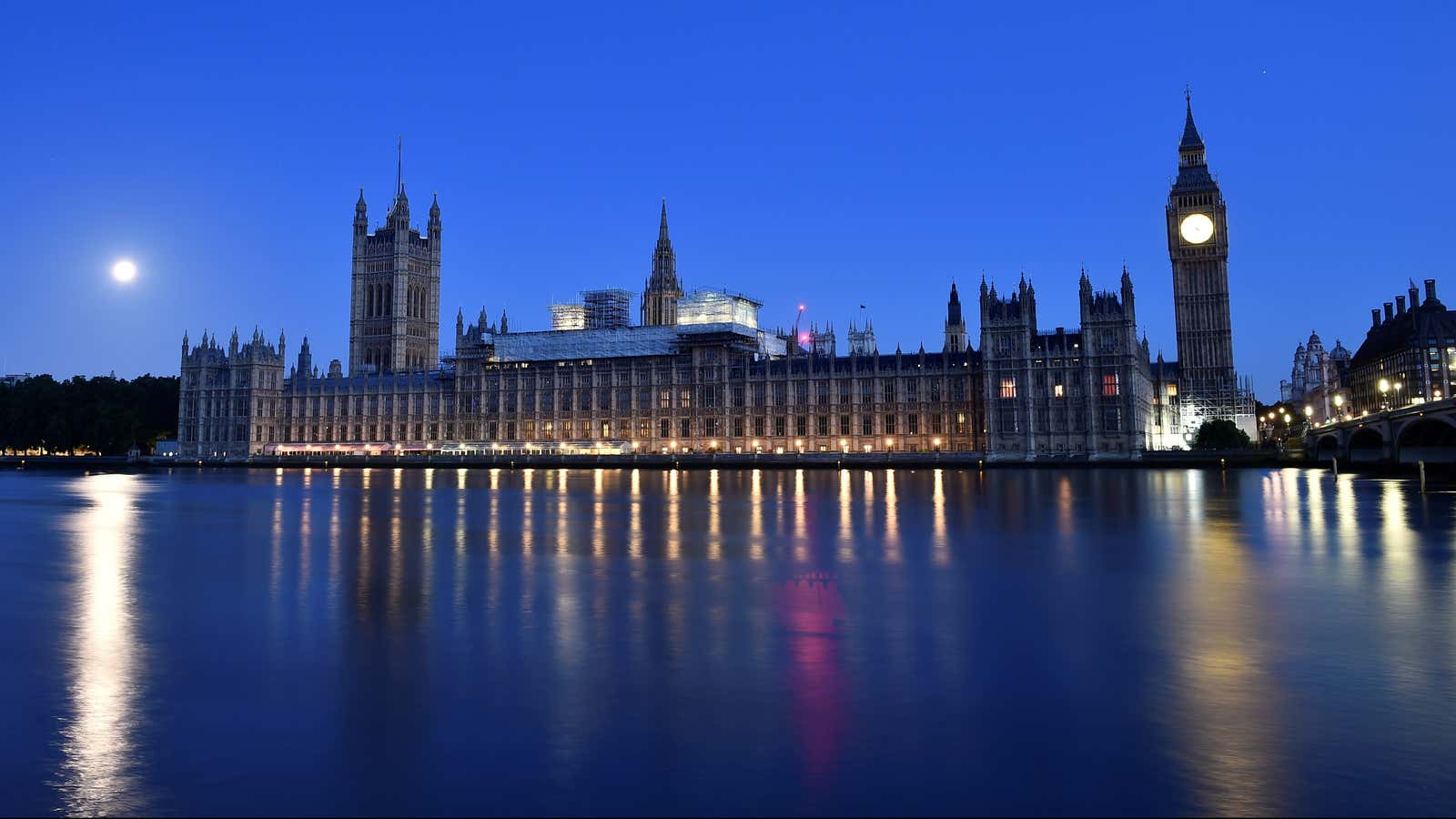The UK’s parliament voted today (April 22) to endorse a motion accusing Chinese authorities of committing crimes against humanity and genocide in its treatment of ethnic and religious minorities.
Around 1 million Uyghurs and members of other minority groups are believed to have been held and mistreated by authorities in internment camps in Xinjiang, a northwestern region of China. Beijing denies these allegations and defends the camps as a means to eradicate terrorism.
Today’s motion was submitted by Nusrat Ghani, a Conservative member of parliament who was recently sanctioned by the Chinese government for her work on this issue. It is non-binding and passed by a unanimous voice vote.
It’s the latest instance of parliamentarians wading into a controversial question that governments have generally preferred to avoid.
The US was the first to accuse China of genocide in a unilateral statement issued by Donald Trump’s outgoing administration in January. Then, in February, Canada’s House of Commons declared the Chinese government’s treatment of Uyghur Muslims a genocide. Prime minister Justin Trudeau and most members of his party abstained.
A few days later, the Dutch parliament adopted a similar motion, which Dutch prime minister Mark Rutte and his Liberal Party voted against. In the coming months, the question will be put before the parliaments of Germany and of Italy, where according to Politico, it “threatens to fracture the ruling coalition in Rome just as new prime minister Mario Draghi is trying to define his China policy.”
In recent weeks, the UK joined the US, EU, and Canada in imposing sanctions on a handful of Chinese Communist Party officials working in Xinjiang for perpetrating what they said were “gross human rights violations…against Uyghurs and other minorities.” They stopped short of calling the violations a genocide, but China was swift to retaliate, sanctioning British and European politicians, researchers, think tanks, and law firms involved in varying degrees in advocacy on behalf of Uyghurs. The Chinese government has called these accusations “lies and misinformation.”
In a statement about today’s vote, Ghani called on the British government to “guarantee that it will not pursue deeper trade or investment ties with China until its government ends the persecution of the Uyghurs and lifts sanctions on its own MPs.”
The Chinese embassy in the UK said in a statement that “the so-called ‘genocide’ against Uyghurs in Xinjiang is a flat-out lie which violates international law,” and called on the UK to “immediately right its wrong moves.”
Governments have typically pointed to the courts as the proper forum for determining whether or not a genocide is taking place. But a recent showdown between the UK government and some of its parliamentarians over an amendment to a Trade Bill that would have allowed Parliament to block trade deals with countries accused of genocide by judicial committees shows just how fraught that concept is.
Crimes against humanity and genocide are different in that the former includes crimes that don’t necessarily target a specific group, according to the United Nations, while genocide refers to crimes committed “with intent to destroy, in whole or in part, a national, ethnical, racial, or religious group.”
During today’s debate, minister of state for Asia Nigel Adams said there were “serious and widespread human rights violations” occurring in Xinjiang, but reiterated “the UK’s long-standing position” that “determining whether a situation amounts to genocide or crimes against humanity is an issue for competent national and international courts, after consideration of all the available evidence.”
Some MPs who are not in government were also opposed to the motion. Richard Graham, chair of the All-Party Parliamentary Group on China (APPCG), told Quartz:
“Today sees the tenth or eleventh discussion of the situation of the Uyghurs in Xinjiang in the last year, and we have had by contrast a single statement on the situation in Myanmar, where large numbers of people have been killed from a military coup that has snuffed out a newly established democracy. We need to stand up for our values, support open societies, champion free trade, and increase jobs through exports to growth areas of the world. Does the number of debates on these different issues currently reflect the balance of British interests? No.”
This post has been updated to include a definition of genocide, as well as parts of a statement by the Chinese embassy in the UK.
